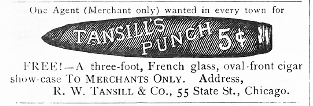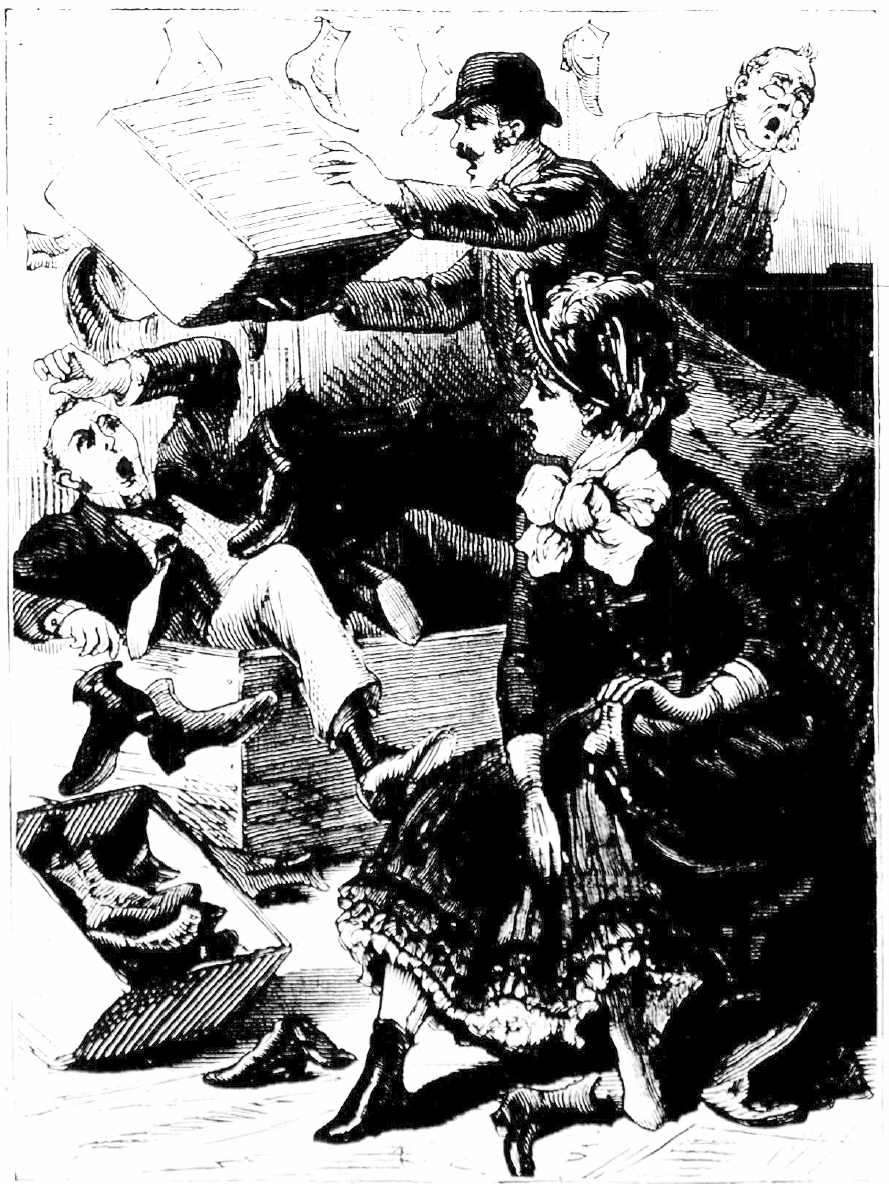
Getting Above his Business.

How a too presumptuous shoe dealer’s attention to a female customer was resented by her male escort.
August 31, 2015

alias: , BROWN, HERMAN GREENTHAL
PICKPOCKET
Via Newspapers.comI have nothing to add to this story, except that it’s certainly a funny old world. The “Blairsville Enterprise,” March 14, 1899:A petition filed at Cordele, Ga., for a receiver for the First National Bank ends a peculiar story. The bank was established by Dr. George W. Marvin. A few months after organizing it he married a Mrs. Cunningham, a widow, who brought to him a
More...
Strange Company - 3/12/2025
Included in yesterday’s trip to Fall River was a stop at Miss Lizzie’s Coffee shop and a visit to the cellar to see the scene of the tragic demise of the second Mrs. Lawdwick Borden and two of the three little children in 1848. I have been writing about this sad tale since 2010 and had made a previous trip to the cellar some years ago but was unable to get to the spot where the incident occured to get a clear photograph. The tale of Eliza Borden is a very sad, but not uncommon story of post partum depression with a heartrending end. You feel this as you stand in the dark space behind the chimney where Eliza ended her life with a straight razor after dropping 6 month old Holder and his 3 year old sister Eliza Ann into the cellar cistern. Over the years I have found other similar cases, often involving wells and cisterns, and drownings of children followed by suicides of the mothers. These photos show the chimney, cistern pipe, back wall, dirt and brick floor, original floorboards forming the cellar ceiling and what appears to be an original door. To be in the place where this happened is a sobering experience. My thanks to Joe Pereira for allowing us to see and record the place where this sad occurrence unfolded in 1848. R.I.P. Holder, Eliza and Eliza Ann Borden. Visit our Articles section above for more on this story. The coffee shop has won its suit to retain its name and has plans to expand into the shop next door and extend its menu in the near future.
More...
Lizzie Borden: Warps and Wefts - 2/12/2024
I’m thrilled to let everyone know that Ephemeral New York’s Gilded Age Riverside Drive walking tours are back and officially on the schedule this spring—and ready for sign-ups! More tours are planned through the year, but these are the first three of the season. Click the link for more information and how to get tickets. […]
More...
Ephemeral New York - 3/12/2025
An article I recently wrote for the British online magazine, New Politic, is now available online. The article, “The Criminal Origins of the United States of America,†is about British convict transportation to America, which took place between the years 1718 and 1775, and is the subject of my book, Bound with an Iron Chain: […]
More...
Early American Crime - 12/17/2021
A driverless horse and wagon wandered aimlessly in the prairie
between Fort Gibson and Tahlequah in Indian Territory on December 3, 1883. Jim
Merrill heard the wagon come up to his front gate and went out to investigate.
In the bed of the wagon, he found the body of Arch Casey with a large bullet
hole in his left breast. The wagon tracks were clearly visible in the dirt. They
followed a
More...
Murder By Gaslight - 3/8/2025
Soapy Smith STAR NotebookPage 18 - Original copy1884Courtesy of Geri Murphy(Click image to enlarge)
oapy Smith in Denver.Operating the prize package soap sell racket in 1884.This is page 18, the continuation of page 17, and dated March 28 - April 12, 1884, the continuation of deciphering Soapy Smith's "star" notebook from the Geri Murphy's collection. A complete introduction to this notebook
More...
Soapy Smith's Soap Box - 3/11/2025
Youth With Executioner by Nuremberg native Albrecht Dürer … although it’s dated to 1493, which was during a period of several years when Dürer worked abroad. November 13 [1617]. Burnt alive here a miller of Manberna, who however was lately … Continue reading
More...













